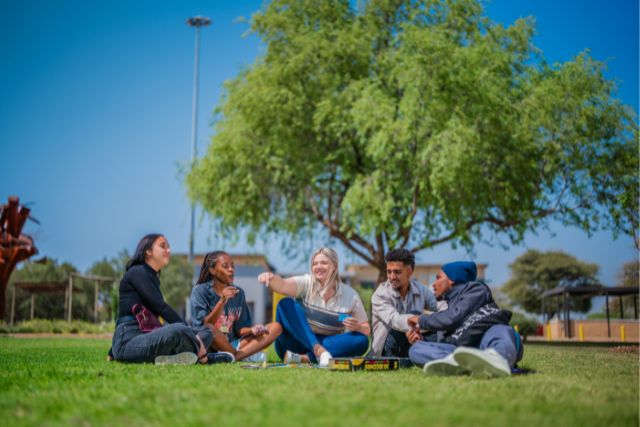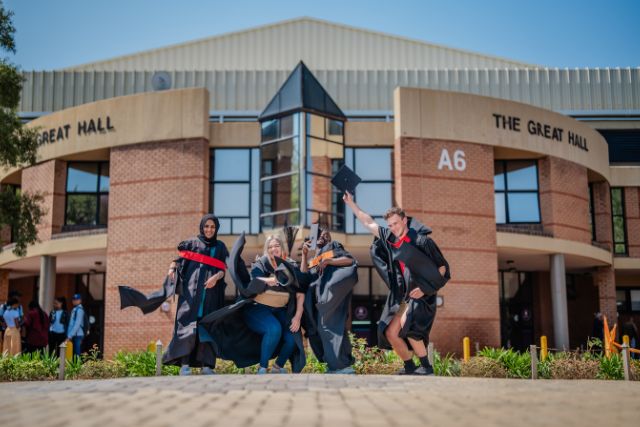When Musa Bizani steps into a room, it’s not just with intention – it’s with impact. As NWU’s SRC Community and Stakeholder Engagement Officer and a 2025 Siyaphumelela Scholar, Musa strives for a kind of leadership that is as collaborative as it is courageous.
Whether he’s championing food security, coordinating outreach across campuses, or collaborating on initiatives like the TRACTOR Project, Musa believes that real change starts when student voices join in to shape the future.
In this interview, Musa reflects on his vision, the victories and challenges of mobilising students, and how NWU’s culture of service is fuelling a more sustainable, inclusive university experience – one project, partnership, and purposeful leader at a time. His story kicks off our Community Impact and Sustainability campaign with heart, honesty, and hope.
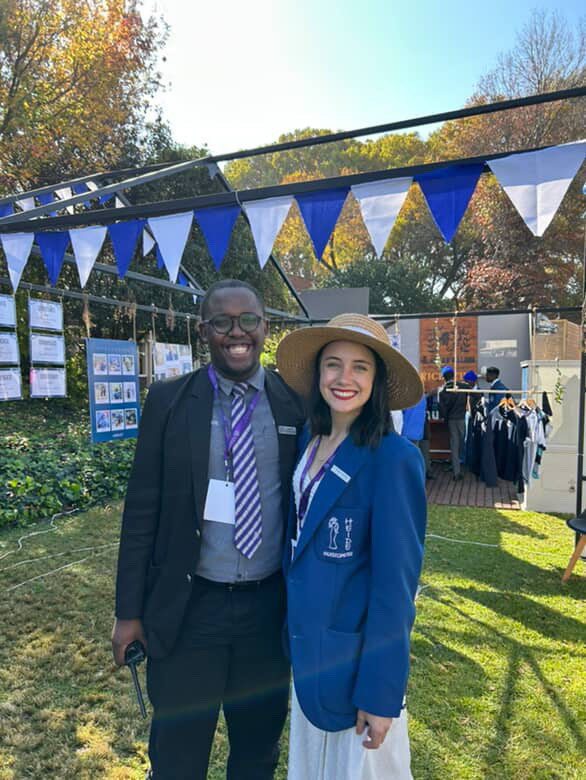
As a member of the Students’ Representative Council (SRC): Community and Stakeholder Engagement Officer, how do you define the role of student leadership in driving community impact and sustainability at NWU?
I would say student leadership is about being a bridge between the university and the broader community. At NWU, I believe student leaders must not only represent student voices but also initiate and sustain projects that improve lives. Driving community impact and sustainability means fostering a culture where students actively engage in service, innovation, and collaboration, making sure that our contributions don’t end when the project ends but continue to benefit communities long after.
What is your personal vision for connecting student leadership with meaningful community change?
As my term comes to an end, my vision was to transform student leadership from a title into a tool for service. I want to see student leaders working hand-in-hand with grassroots communities, faculty departments, and external stakeholders to co-create solutions. Whether it’s food security, education outreach, or environmental justice. I believe in leadership that listens, learns, and leads with humility and purpose.
Can you share examples of recent community impact projects where student leadership played a central role?
One of the most powerful aspects of student leadership at NWU is our ability to collaborate across campuses to create meaningful community impact. Each Students’ Campus Council (SCC) runs unique outreach initiatives on their respective campuses, ranging from literacy drives and school mentorship programs to menstrual health campaigns, all of which are supported and coordinated through the Student Representative Council (SRC) to ensure alignment and shared learning across Mahikeng, Potchefstroom, and Vanderbijlpark.
Recent highlights include the Intercampus Sports Day, which promoted wellness and social cohesion among students from different campuses and backgrounds, and the International Flag Days hosted on all three campuses, where international students took the lead in celebrating cultural diversity through exhibitions and dialogue.
These events not only amplified inclusion but also deepened our sense of shared responsibility as student leaders, ensuring that our projects are not siloed or short-lived but part of a larger, united vision of community engagement.
Lastly, the current TRACTOR PROJECT, a highlight of my term, I am quite excited for what it has in store for the university community and the Northwest community at large.
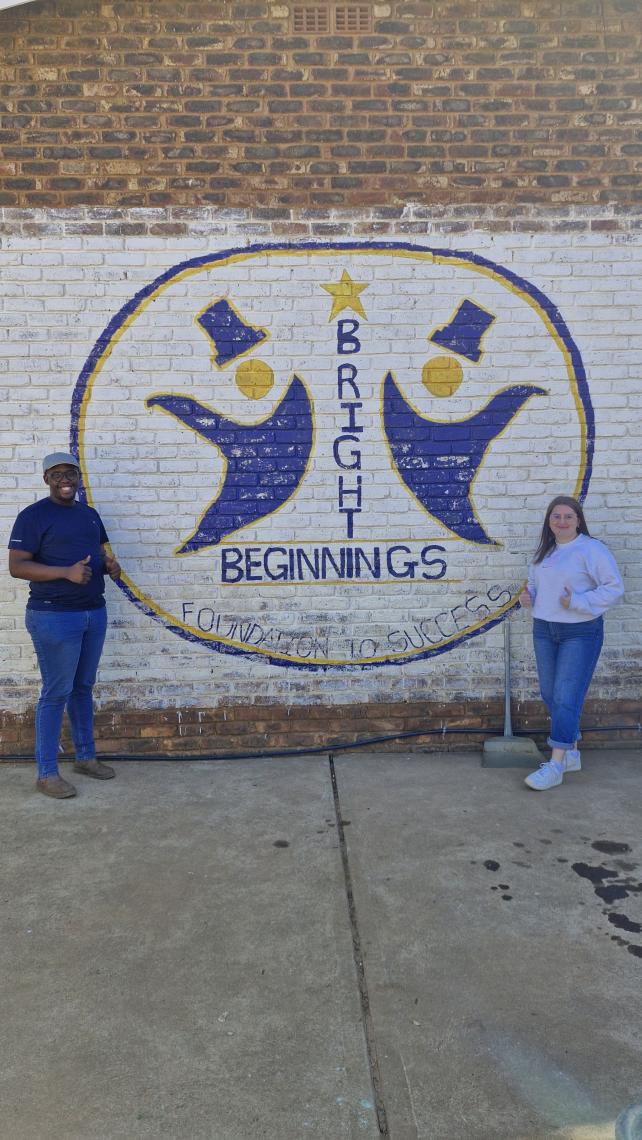
How do you integrate sustainability principles into these initiatives so that they have a lasting effect?
Sustainability is central to every initiative we lead, because true community impact is measured not just by what we do during our term, but by what continues after we’ve left. One of the key ways we embed sustainability is through a strong handover culture, where every project is accompanied by a detailed transfer report to guide the next leader.
This institutional memory ensures continuity, prevents duplication of efforts, and allows future SRC and SCC members to build on past successes rather than starting from scratch.
When planning initiatives, we also intentionally include long-term community partners and train student volunteers, so the project becomes embedded in the university’s culture of service. In this way, sustainability isn’t an afterthought but the foundation that allows our community work to have a lasting and evolving effect.
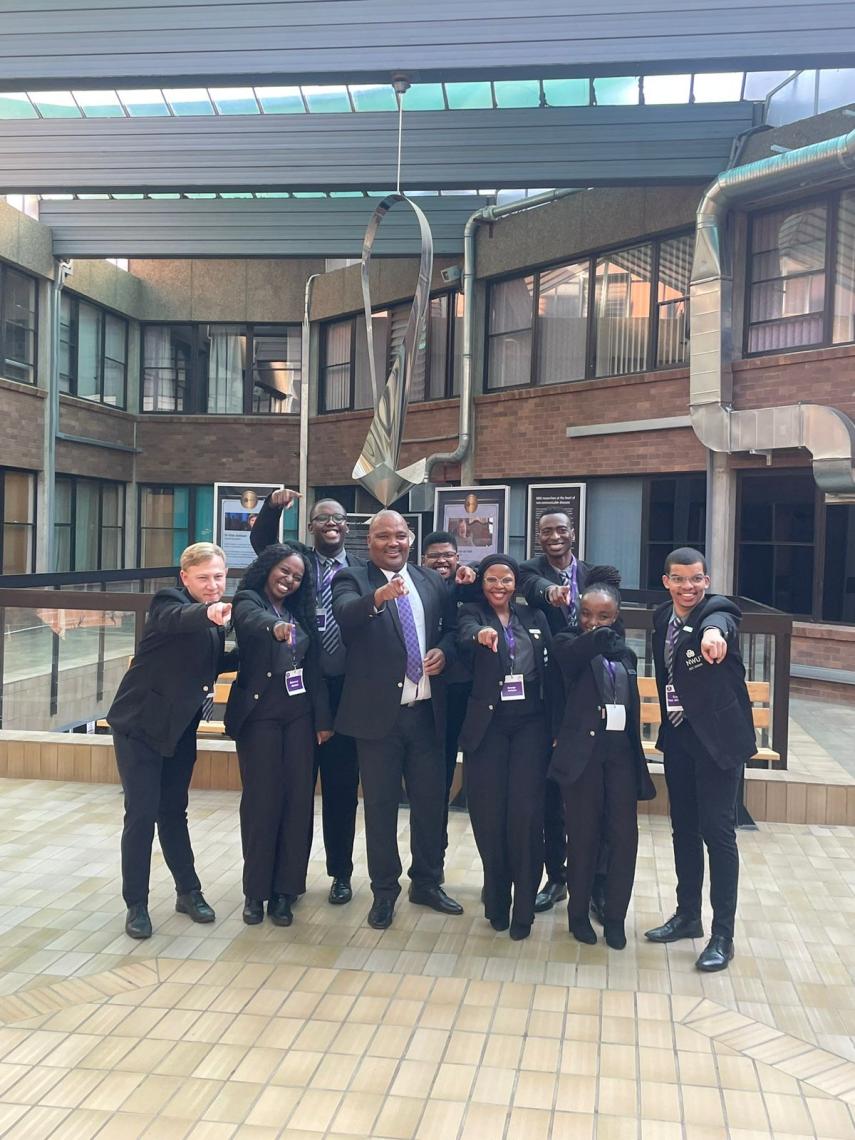
Are there collaborations between the SRC and external stakeholders or organisations that have significantly boosted project success?
Yes, certainly. A key example is the TRACTOR Project, which stands as a testament to the power of strategic collaboration. This initiative was made possible through the combined efforts of both internal and external stakeholders and external partners.
These collaborations provided the technical support, resources, and community access we needed to ensure the project’s success. The strength of this model lies in its inclusivity; by involving all stakeholders from the planning to the implementation stage, we not only enhance the reach and quality of our work but also ensure shared ownership and long-term sustainability.
How do you encourage and empower students from different faculties and backgrounds to get involved in community initiatives?
Encouraging and empowering students from different faculties and backgrounds starts with creating spaces where everyone feels seen, heard, and valued. We intentionally design our community initiatives to be interdisciplinary and accessible, showing students how their unique skills – whether in law, health sciences, education, engineering, or the arts can contribute meaningfully to real-world impact.
We also partner with academic departments, residences, and societies to embed volunteerism into student life, and we ensure our messaging reflects the diversity of the NWU student body.
Through storytelling, inclusive leadership, and visible representation, we dismantle the idea that community work is reserved for a select few. Instead, we promote it as a shared responsibility and a powerful opportunity for personal growth, leadership, and learning beyond the lecture room.
What skills do you think students gain from participating in community impact and sustainability projects?
Students gain a wide range of valuable skills from participating in community impact and sustainability projects, many of which are transferable to both professional and personal life. These include leadership, project management, teamwork, and communication – especially when engaging with diverse communities and stakeholders.
They also develop problem-solving abilities, adaptability, and critical thinking as they respond to real-world challenges in dynamic environments. Importantly, students build empathy, cultural intelligence, and a deeper understanding of social responsibility (soft skills).
By working on sustainability-focused projects, they also become more aware of long-term planning, resource management, and ethical decision-making. These experiences not only enhance their CVs but also shape them into socially conscious graduates who are prepared to lead with purpose.
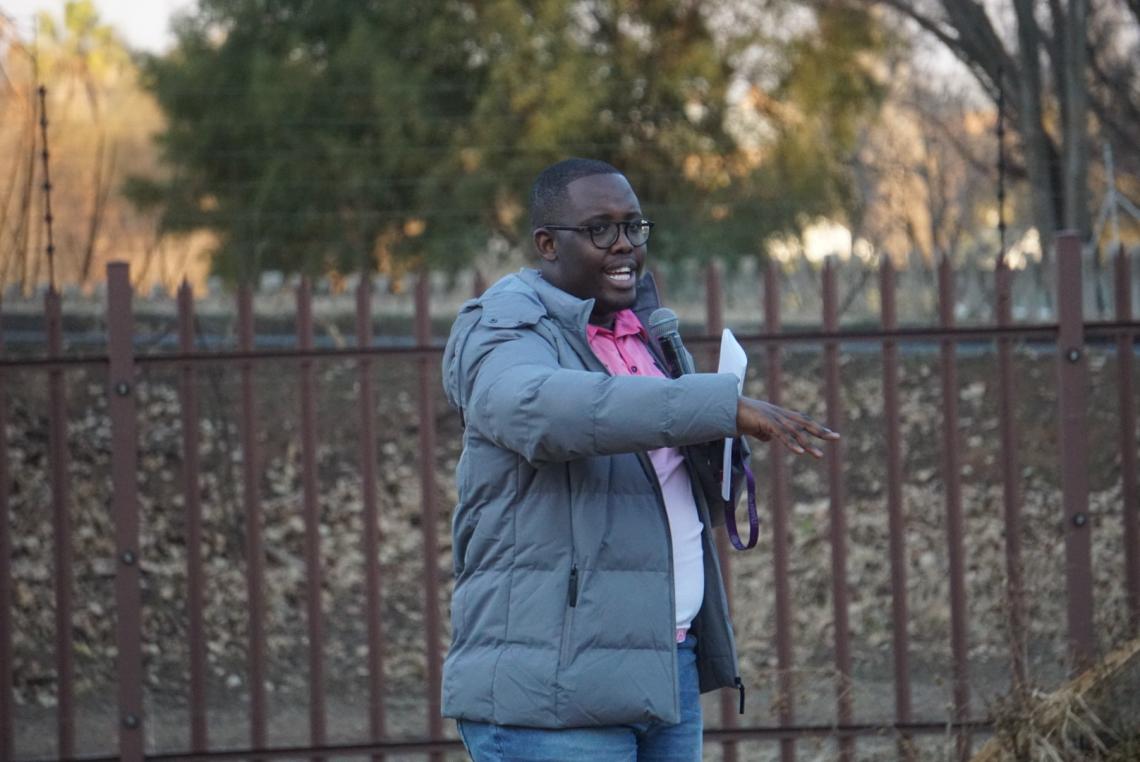
What are some of the biggest challenges you’ve faced in mobilising students for community work, and how have you overcome them?
One of the biggest challenges in mobilizing students for community work is overcoming the perception that such initiatives are time-consuming or only relevant to certain fields of study. Many students face demanding academic schedules and often feel that they don’t have the capacity to get involved.
To address this, we’ve worked on integrating community engagement into existing student life structures such as residences, societies, and faculties, making it easier for students to participate without feeling like it’s an added burden.
Another challenge has been creating a sense of ownership and continuity in projects. We’ve overcome this by ensuring students are not just volunteers but co-creators of initiatives, involved from planning to execution. Recognizing and celebrating their contributions through platforms like social media, awards, and campus showcases also boosts morale and inspires others to get involved.
Looking ahead, what opportunities do you see for student leadership to expand its influence in community and sustainability work?
I see tremendous opportunities for student leadership to deepen its influence in community and sustainability work by formalising partnerships with local municipalities, NGOs, and even private sector entities that share similar development goals. There’s also space to integrate community engagement into academic programs through service-learning modules, where students apply their knowledge in real-world contexts.
Additionally, as digital platforms become more central to student life, we can use technology to drive awareness, coordinate projects, and measure impact more effectively.
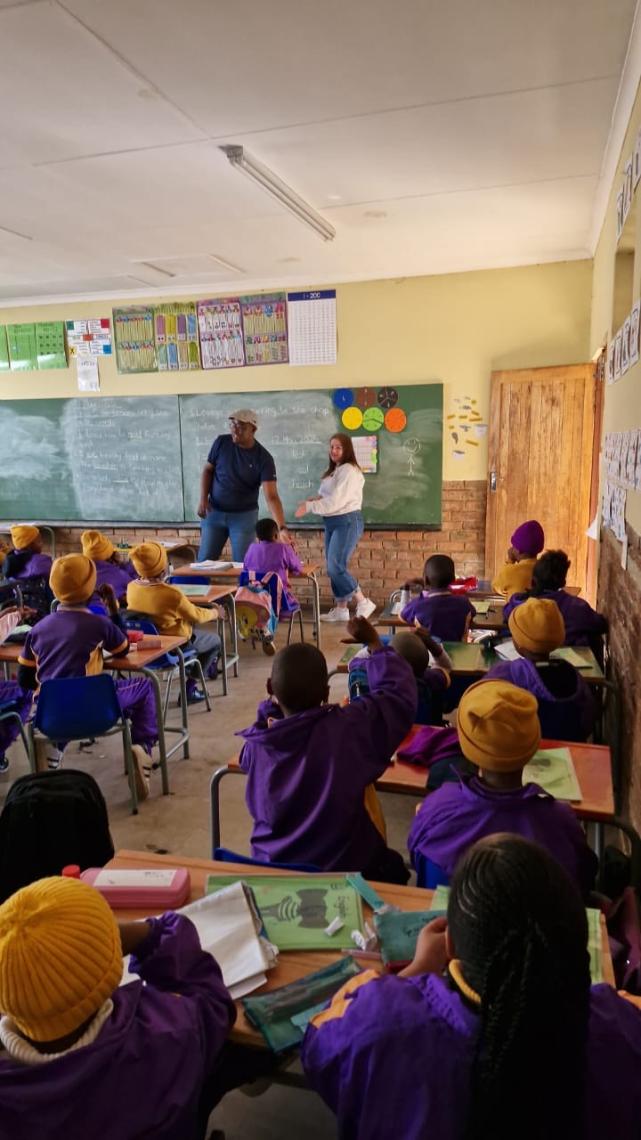
What has been the most rewarding moment for you in this role so far?
The most rewarding moment in this role has been witnessing the genuine enthusiasm and commitment of students from all walks of life coming together to make a positive difference. Whether it was during a successful community outreach event or seeing a student-led project continue thriving beyond its initial launch, these moments affirm that our efforts are creating lasting impact. Personally, it’s incredibly fulfilling to know that through collaboration and leadership, we’re not only addressing immediate community needs but also empowering students to develop as socially responsible leaders who will carry these values forward long after their time at NWU.
How can ordinary NWU students – who may not be in formal leadership positions – contribute to the SRC’s community impact and sustainability goals?
NWU students play a crucial role in advancing the SRC’s community impact and sustainability goals, even without holding formal leadership positions. Every student can contribute by volunteering for campus initiatives, joining societies (like the GreenTeam, and many more), getting involved in their residences as well as their faculties, focusing on service, or simply spreading awareness about ongoing projects through their networks.

